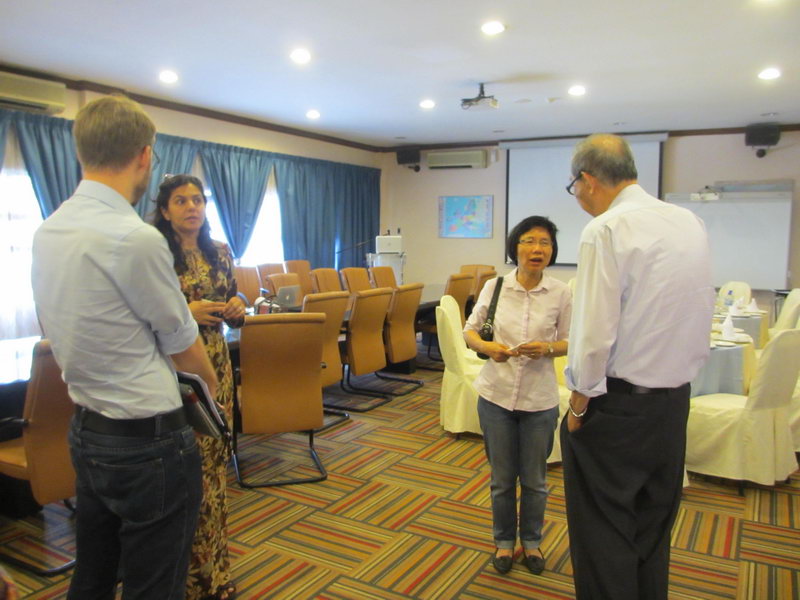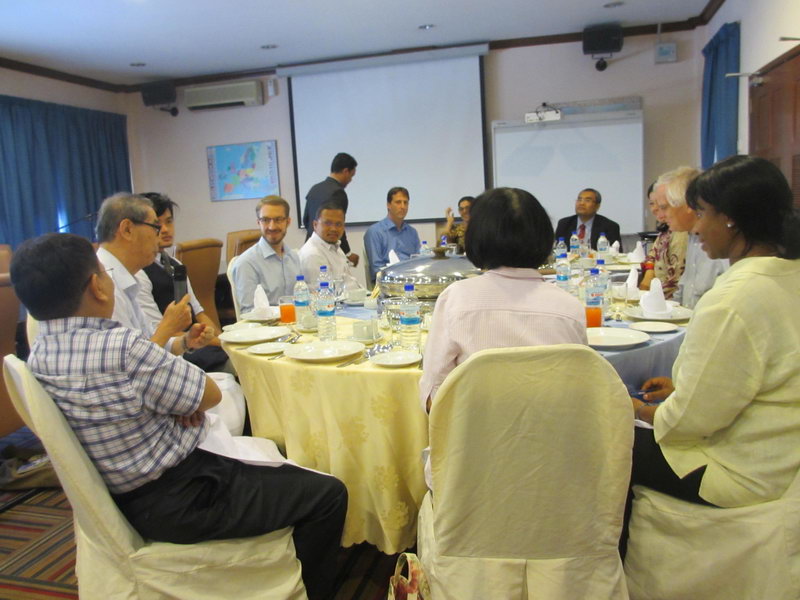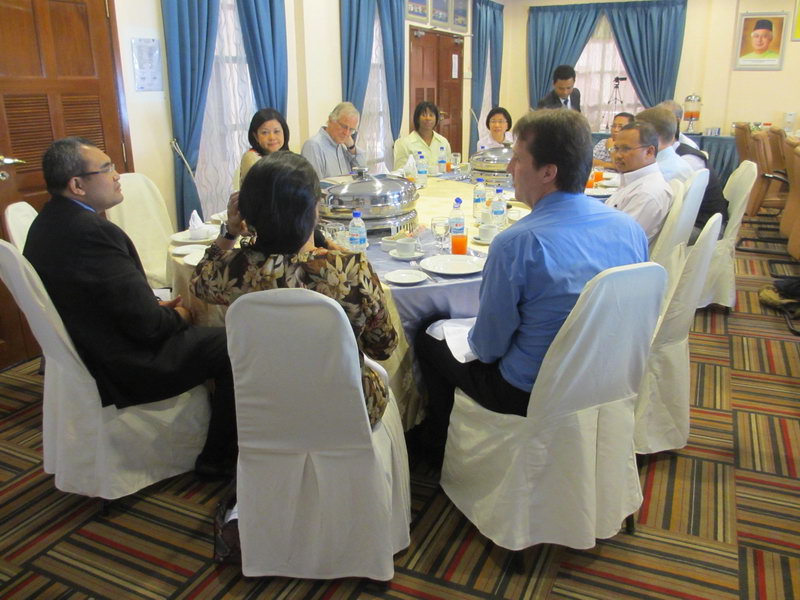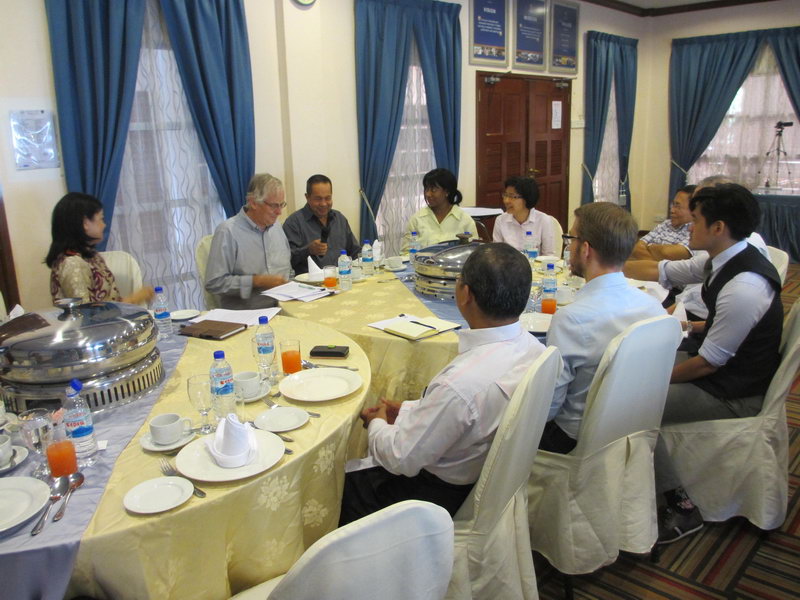Luncheon Seminar 19 September 2016
HomeOn September 19 the Centre for ASEAN Regionalism University of Malaya (CARUM) – in conjunction with the Asia-Europe Institute (AEI) – hosted a luncheon seminar to follow up the successful International Conference on ASEAN Studies 2016 (ICONAS 2016) – which was co-hosted by CARUM. Chaired by Prof. Dr. Azirah Hashim (AEI) and Prof. Dr. Anthony Milner (AEI) attendees continued and extended the discussion of the first panel at ICONAS 2016. The conversation as before revolved around Malaysian approaches to ASEAN.
CARUM was delighted to extend the scope of participants beyond the ICONAS 2016 speakers. In addition to the ICONAS participants, the 19 September luncheon included, Ms Astanah Abdul Aziz from the Ministry of Foreign Affairs (MOFA), Prof. Emeritus Dato’ Dr. Abdul Rahman Embong (Universiti Kebangsaan Malaysia, UKM) and Prof. Dato’ Dr. Zakaria Haji Ahmad (HELP University).
Discussing different aspects of Malaysian approaches to regionalism, and with an eye to a future publication, the following topics were identified as potential book chapters:
- The Malaysian government’s approach to ASEAN: Cornerstone of Malaysian foreign policy; People’s ASEAN, ASEAN unity, ASEAN and East Asian regionalism
- Malaysian government priorities and approaches towards ASEAN, compared with other member countries
- Malaysia’s stress on interpersonal relationships among ASEAN leaders: a historical review
- Malaysia’s preference for organic community building
- Malaysian nation building/Malaysian region building: Integration over assimilation in Malaysia’s approach to ASEAN
- Rumpun and regional resilience in Malaysian thinking about ASEAN
- Realism and pragmatism as the basis of Malaysia’s ASEAN policy
- Malaysia’s stress on a ‘web of treaties and documents’ in bonding
- Does Malaysia see the economic priority as the basis of ASEAN?
- Malaysia’s approach to economic regionalism
- Malaysia’s approach towards Growth Triangles (Indonesia-Malaysia-Thailand Growth Triangle (IMT-GT)
- Malaysia’s approach to the ASEAN Single Shipping Market and non-tariff barriers: a case
- Malaysia’s approach to people movements and human rights
- Malaysia’s top-down ASEAN style: tension with democratization
- What role does sovereignty play in Malaysia’s approach to ASEAN?
- Malaysia’s approach to Higher Education Mobility
- Malaysian approach to regionalism – comparisons with the EU
- Malaysia’s approach to regionalism – comparisons from Africa
- Malaysia’s approach to regionalism – comparisons from Central Asia
CARUM is grateful to everyone who participated in the conference and/or the luncheon. We are thankful for their contribution to the discussion and are excited to develop this project with them over the upcoming months.



